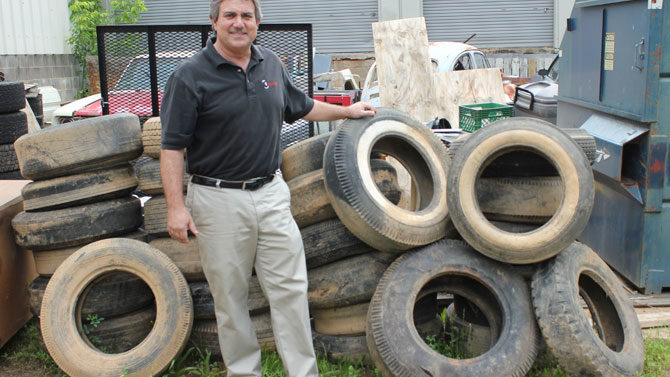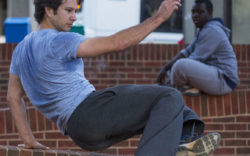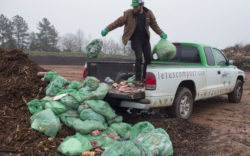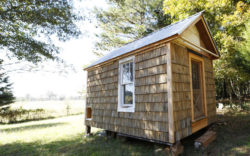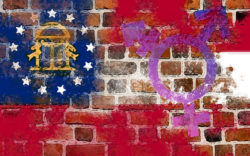The Atlanta Highway isn’t known as a great destination for outdoorspeople. But behind the bleak grayness of the highway, water-minded Athenians can paddle to their hearts’ content.
Entering the kayaking business turned the owner of Big Dog’s On the River—a three-year-old outpost on the Middle Oconee River—into “a real river advocate,” Terry Stephens says. Participating in Rivers Alive and University of Georgia river cleanups, Big Dog’s workers and volunteers have dragged scores of tires out of the river.
“They’ve got these big, fat, white sidewalls,” Stephens says. “Well, those kinda tires haven’t been built since the ‘60s or ‘70s. That’s how long these tires have been in the river.”
Tires—mosquito breeding grounds that leach chemicals—are just one issue among many facing environmentalists. Agricultural and industrial runoff contaminates water often already littered with glass, styrofoam and other trash. Defunct dams threaten wildlife, and water wars result from poorly regulated water withdrawal.
“Or there’s no water,” says Broad River Outpost owner and founder Michael Moody. “That’s the other thing. The 90-pound gorilla in the corner is industry, and the cities are taking the water.”
Rivers in Athens may be brimming post-drought, but meeting public water needs often has the side effect of harming the environment. “Instead of investing in resources and conservation measures to save water, they’re just building more reservoirs,” says Georgia River Network community programs coordinator Gwyneth Moody. Reservoirs can cause excessive evaporation and ecological deterioration.
“For sure, we have to have water to drink,” Michael Moody (Gwyneth Moody’s father) says. “But there’s good ways and bad ways to approach it. And unfortunately, they’re approaching it the bad way because people are making money off of it.”
One of those “people” is Georgia Power, which owns 18 lakes mostly created to generate hydroelectricity. “The biggest use of our water is Georgia Power,” Michael Moody says. “They use our water, and then they sell the power to Florida. And nobody says ‘boo’ to them, ‘cause they’re so big and powerful, and they own the Public Service Commission,” the state agency that regulates utilities.
Conservation issues are complex, but solving them starts on the river. In addition to monitoring the environment through testing and observation, organizations such as the Upper Oconee Watershed Network focus on advocacy and outreach.
“Terry Stephens is doing a lot of different really valuable things,” UOWN board member Kyle McKay says. “While their trash removal efforts are certainly a benefit to the river and the community, my two cents are that the larger benefit is the change in attitudes about the river by getting people out on the water.”
Local kayakers have been making the half-hour trip to Broad River Outpost near Danielsville since 1985, and the Sandbar, which opened in Bowman in 1998, is no closer to town. But in 2010, Stephens opened Athens’ only kayaking business in the backyard of his tire and auto service company.
Stephens decided to bring kayaking to the Classic City after seeing some students float downriver on an air mattress behind his Atlanta Highway storage facility.
“There’s not a whole lot to do in Athens outside of football when you think about it,” he says. “So I think it’s a good tourism attraction.”
Stephens is the board member in charge of UOWN’s committee on blue trails, also called water trails. He says he hopes to see the unused dams along the Oconee River removed.
“Basically, I’d like to see a blue trail from Hall County to Greene County,” he says.
Michael Moody, a Broad River Watershed Association member, advocates public access points to waterways. These are scarce above the Fall Line, he says.
“They were thinking, in the old days, ‘Gotta have a motorboat, gotta have a barge,’ whatever. They didn’t think about kayaking or canoeing,” he says. “But now we’re stuck with that legacy. Now we’re getting access to some degree, but most of it’s on private places.”
Water trails are one way to provide public access.
“It really does instill this kind of sense of place,” Gwyneth Moody says. “You feel like you’re kind of a part of it and you own part of it, in a way. It still encourages people to get out and recreate on the river, and it kind of instills a sense of respect. And people kind of want to protect it and invest some energy into it. So it makes a big difference in river protection.”
Like what you just read? Support Flagpole by making a donation today. Every dollar you give helps fund our ongoing mission to provide Athens with quality, independent journalism.



